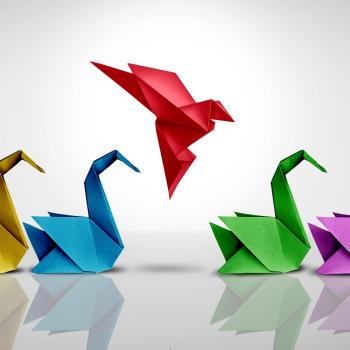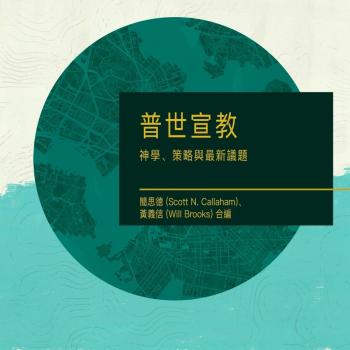People hear the word “patronage” and think of Medieval Europe or colonialism from centuries past. Patronage is alive and well in the world, even if it goes by other names.
The United States has long served as a patron to smaller countries. China is in the midst of a campaign to garner its own set of “clients.” This effort is largely directed at countries in Central Asian and Africa through its “Belt and Road” initiative. Amid the ongoing coronavirus pandemic, we see modern-day patronage playing out at a global level. I’ll highlight two examples in this post.
The Problem of Political Provocation
For years, the rivalry between China and the United States complicated geopolitics. The relationship between the two countries is not helped by the insistence of some people who refer to COVID-19 as the “China virus”, “Wuhan virus,” or even a “foreign virus.” Not surprisingly, China’s foreign ministry said,
“Despite the fact that the WHO has officially named this novel type of coronavirus, a certain American politician, disrespecting science and the WHO decision, jumped at the first chance to stigmatize China and Wuhan with it.”
It’s gotten to the point that both countries have accused the other of intentionally creating the COVID-19 as a bioweapon.
WHO (the World Health Organization) is well aware of this problem. The Director-General of WHO explains why they chose to use COVID-19 as a name. He said,
“[WHO] wanted to avoid stigmatizing a country or particular group, so it chose a name that did not refer to a geographical location, animals, an individual or a group of people.”
Given these dynamics, I was a bit surprised to hear the decision by Asia’s richest man, Jack Ma, co-founder and former executive chairman of Alibaba. He announced last Friday that he would donate 500,000 testing kits and 1 million masks to the United States.
What surprised me is not that he would donate; rather, I was intrigued by the fact that China allowed him. In light of recent tensions, it would be very in keeping with China’s style.
Patronage as Passive-Aggressive Politics
Jayson Georges’ definition of “patronage” is succinct yet helpful. In Ministering in Patronage Cultures, he describes patronage as “a reciprocal relationship between social unequals.” Accordingly, to assume the role of a patron is a claim of power or high status.
Governments know the symbolism attached to giving and receiving aid. China rejected offers of assistance from the U.S and Japan after the Sichuan earthquake. Similarly, Taiwan rejected China’s offers in 1999 after its own natural disaster. Giving assistance can represent a claim to a higher status. Receiving aid places one in the position of a client.
This context explains a tweet by one China watcher in response to Jack Ma’s donation:
“This is an A+++ passive aggressive Chinese flex that will come up at least 2x every conversation with an uncle from now on, but we will take what we can get!”
The gift of masks and testing kits is a poke in the eye to the Trump administration, who has not only insulted China but insisted on attacking the pandemic on its own.

In a statement, Ma said,
“This crisis presents a huge challenge to all humankind in a globalized world. The pandemic we face today can no longer be resolved by an individual country. Rather, we need to combat the virus by working hand-in-hand. At this moment, We can’t beat this virus unless we eliminate boundaries to resources and share our know-how and hard-earned lessons. United we stand, divided we fall!”
The phrase “working hand-in-hand” is not the best choice of words; still, in the words of WIRED magazine, the entire statement “cleverly highlights the weakness in Washington’s response to the pandemic.” The final phrase is a punch to the political gut as it has long been a favorite motto of American politicians.
Since the assistance comes through Ma, the U.S. can’t reject the assistance as easily it did with the test kits offered by WHO. Yet, everyone knows that China ultimately controls what people like Ma can do in these situations.
Do Chinese Need “Gratitude Education”?
Chinese, better than Americans, know how patronage works. To some degree, it’s built into the fabric of all societies. Patronage involves reciprocity. While the patron gives financial or material assistance, a client is expected to reciprocate in some way. In the ancient world, public praise and thanksgiving were among the most common ways a client might respond. A client would publicly extol the patron’s generosity.
Naturally, Wuhan’s top Communist Party official, Wang Zhonglin, recently suggested,
“[We] must through various channels carry out gratitude education among the citizens of the whole city as well as cadres so that they thank the general secretary [Xi Jinping], thank the communist party, listen to the party’s words, follow the party’s way, and create strong positive energy.”
No doubt, he wanted to curry favor with the country’s top leadership. However, the people in Wuhan did not respond as he hoped. What followed was an unusual display of public backlash. Journalist Chu Zhaoxin wrote on WeChat,
“If this is Wang Zhonglin’s idea, I think he needs to educate himself. You are a public servant, and your job is to serve the people.… Rather than blaming the people in Wuhan you serve for not being grateful, you should reflect and be ashamed because you and your team are not working properly.”
Many modern day attempts to play the role of patron forget something people in the past knew well. For centuries, patrons saw their actions as a part of their responsibility, their social duty. Today, however, things have changed. Political patrons now want the praise and power without the responsibility or reciprocity.
For my previous post on “Honor, Shame, and the Coronavirus”, click here.













